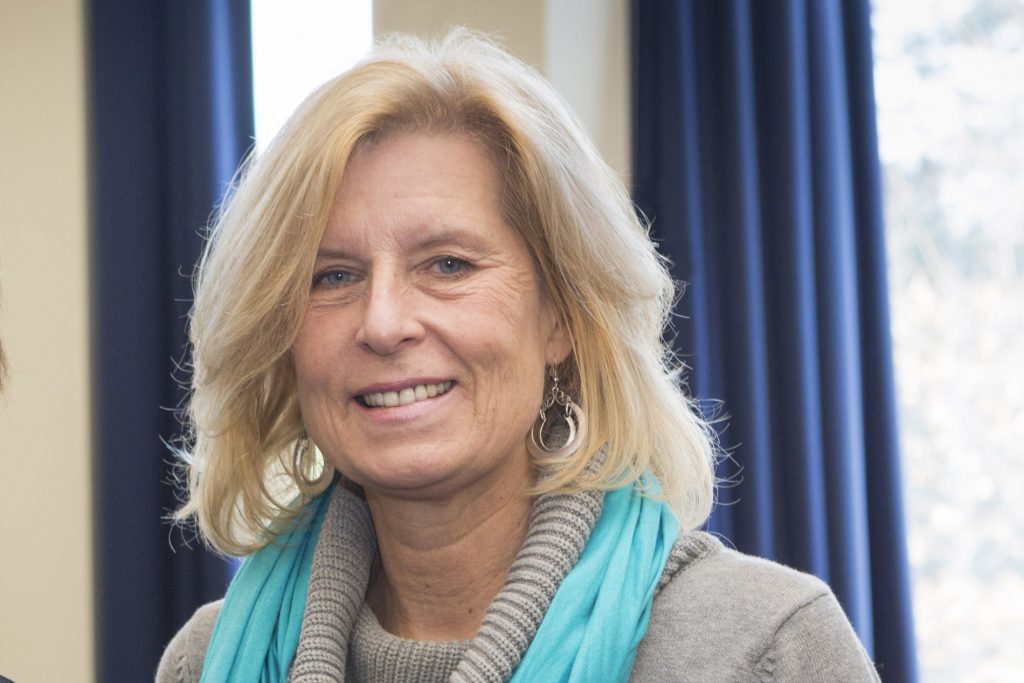Last summer, two Boston College Law faculty, Mary Ann Chirba ’81 and David Wirth, were invited to design a course for an undergraduate minor in Global Public Health and the Common Good at the University’s Schiller Institute for Integrated Science and Society. One outcome of that venture was a presentation Chirba gave at the Institute’s conference on “Ethical Challenges in Global Public Health: Climate Change, Pollution, and the Health of the Poor” in September 2019.
Yet something unexpected happened when she revisited that research one evening this spring in preparation for her BC Law course in Federal Health Law, Policy & Politics. “Presenting this material six months ago, now seems like six lifetimes ago,” Chirba said, still subdued by the foreshadowing contained in her talk, “US Healthcare: Policy Implications for Global Public Health.”
“I’d lost sight of the details and did not realize at the time that the funding and program cuts mentioned would wreak havoc on the US and the world so quickly, and in such devastating ways,” said Chirba, referring to the global coronavirus pandemic.
In hindsight, as America leads the world in Covid-19 deaths and scrambles to keep its economy afloat, Chirba draws new understandings from her Schiller Institute presentation, which itself was grounded in her years of scholarship and experience in science, and public health and policy: a bachelors degree in biology from Colgate University, a JD from BC Law, and both a masters and doctorate in public health and health policy from the Harvard Chan School of Public Health. She is also the lead author of Health Care Reform: Law and Practice–A Comprehensive Guide to the Affordable Care Act and its Implementing Regulations, a two-volume treatise co-authored by BC Law adjunct professor Alice A. Noble.
The question of how the law can help or get in the way of individual and public health was Chirba’s starting point for her Schiller talk. “That’s the theme that unifies all of my scholarship, law as a tool to promote or impede health,” she explained. Her presentation looked at health issues domestically and examined how they related to those in the rest of the world. The search encompassed an array of topics, from climate change and immigration to a falling-dominoes array of other social ills—all with adverse implications for public health.
What she saw, even then, was troubling. “The EPA and other agencies were all being depleted, ignored, underfunded, and overridden,” Chirba noted.
She documented it all for the Schiller conference. The US was isolating itself from the rest of the world: cutting its UN funding to fight malaria, AIDS, polio, and other infectious diseases around the globe. Its immigration policies were separating and damaging children and families, fomenting a singular health crisis at the borders. The current Administration was eliminating operations like the Centers for Disease Control’s Climate and Health program, and shrinking agencies that protect fish and wildlife, agriculture, air, and water resources. Housing, education, transportation, and labor were also in the crosshairs. Science was being ignored, data were being disregarded, and numbers were going in every direction—none of them good. “It was one health care catastrophe after another, locally, nationally, internationally,” she said. As last September’s presentation had demonstrated, the growing long list of short-sighted policy choices had set the stage for a global health crisis of epic proportions.
Beyond drawing on the lessons from last fall’s Schiller talk for this spring’s Health Law course, Chirba sees larger lessons for legal education and professional practice. This whole exercise, Chirba believes, is proof that “you could teach all of law through health law,” because it touches on every aspect of the human condition and implicates every facet of the legal system. It also shows the importance of interdisciplinary study.
“Now more than ever, the law will either promote or impede our ability to protect individual, public, and global health,” she observed. “If we want the law to help rather than hurt,” Chirba concluded, “we have to pay a lot of attention to science.”


